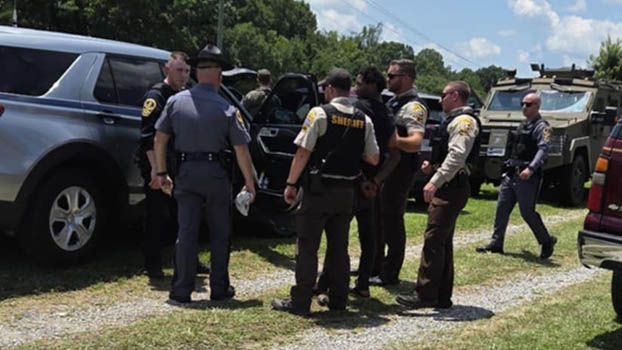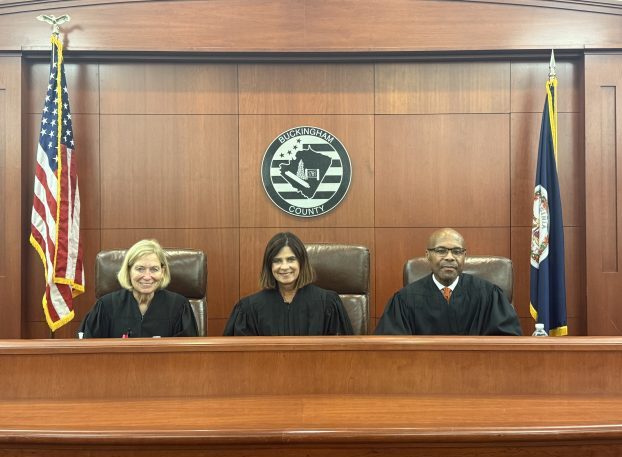Prince Edward officials, residents question county’s solar choices
Published 7:37 am Friday, March 21, 2025
|
Getting your Trinity Audio player ready...
|
The Prince Edward County Comprehensive Plan does not deal with solar. The revised version, currently being worked on, is expected to touch on it. But until that version is approved by county supervisors, some planning commission members feel like it’s a bit premature, bringing all of these solar projects up for discussion. The commission considered two more for approval at their Tuesday, March 18 meeting.
“How can we talk about something that’s not in (the plan)?” Commission Chairman John Prengaman said. “We’ve got the cart before the horse right now, but unfortunately, we’ve been pushing the cart for a while.”
The issue is that the planning commission, before recommending a project, has to rule and say they find the project to be in substantial accord with the county ordinances and comprehensive plan. How can you do that, some commission members argued, since the current plan doesn’t address solar at all? And yes, commission member Rhett Weiss said, they have been dealing with solar for several years, but that doesn’t mean the county can’t slow down and wait for the revised plan to be finished.
“If we’ve had the cart before the horse, do we keep it that way or turn it around?” Weiss said.
Acknowledging the question, a majority of the planning commission still agreed to vote in favor, approving the first of two solar projects and sending it to Prince Edward supervisors. The final vote was 5-2, with Weiss and board of supervisors liaison Llew Gilliam Jr. in opposition.
The frustrations and questions from most in attendance were summed up by Prince Edward resident David Jennings, who questioned why it appears that the county hasn’t really looked into if this is a good fit or beneficial for citizens in the long term.
“Collectively, I don’t think the county has taken a very proactive approach on managing this,” Jennings said. “They’re just reacting and counting the dollar potential.”
Outlining the projects involved
The first project was in a very familiar location. This was Oak Lane Solar Farm, which would be built on 194.8 acres, with 61 acres of solar panels. It’s located on Route 360, near the intersection with Route 628. It’s roughly 11 miles southeast of Farmville and a half mile from the Lunenburg County line. It would be a 5 megawatt solar energy facility. There would be 134 acres set aside for buffers, wildlife corridors and setbacks.
Tyson Utt, the co-founder of CEP Solar, said the company saw from other hearings that a lack of visibility from Route 360 was important to residents, so they reduced the amount of space dedicated to panels. He also promised that the panels would only operate during the day on both sites, so there would be no noise generated at night.
Road damage has been another concern of residents with other projects. Utt told the commission the first project, Oak Lane, will have two entrances. The first would be a construction entrance along Route 360. The second, along Holly Lane, would be for non-construction purposes, like operations and potential emergency use.
The second project, Green Bay Solar Farm, would be on 67.8 acres, just off Route 360 near its intersection with Cheatham Road. Just like Oak Lane, it’s on land that’s primarily timber and pasture.
But unlike the first one, the Green Bay project was flagged due to questions about potential development. Would it bring development to an area currently zoned for agriculture? And more than that, this property is not exactly flat. So what kind of damage might be done to the environment, people questioned, as trees get cut down and the land is reworked to make it fit the project? And what kind of damage could that cause to other properties nearby? With a number of questions surrounding this project, the planning commission unanimously voted to recommend denial.
Concerns raised about each project
One of the concerns about both projects involved what’s not yet known. CEP Solar doesn’t know where they’ll be buying their solar panels if this gets approved. They don’t know what those solar panels will be made of or where they will be made. Utt made the point this is still early in the process and different companies approach it in different ways. CEP decided not to get a master agreement in place for purchasing panels before getting the permit approved or rejected by Prince Edward County.
The majority of concerns and people were the same as those from the opposition over Gabriel Solar. Some residents were worried about property values, while others were afraid it would affect their livestock. Patrick Murphy, who also spoke at the Gabriel Solar hearings, pointed out that the very concept of industrial-scale solar seems to go against the current comprehensive plan for Prince Edward.
He referred back to 2014, when this plan was being worked on. Residents came out to give their opinions, saying that they “all like the countryesque appeal of Prince Edward.” How does a solar panel fit into that, Murphy wondered.
Murphy, who was at the hearing representing Prince Edward County Farm Bureau, questioned why the county seems to focus on these industry-scale projects, rather than the small scale pieces so many had been in favor of? Much like Jennings earlier, he questioned why the county isn’t being proactive.
What happens now in Prince Edward?
Now these projects go on to the board of supervisors, where their requested permits will get either an approval or rejection. Yes, even though the commission voted against Green Bay, their vote is just a recommendation. It’ll be stated at the Prince Edward Board of Supervisors meeting that the planning commission recommended denial of the project. That meeting will take place April 8.






